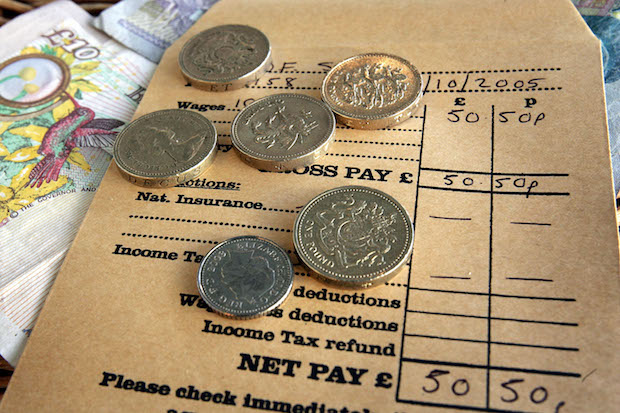Employers have responded to the new National Living Wage by increasing prices or reducing profits rather than cutting jobs, according to a survey from the Resolution Foundation.
The wage, which requires employers to pay staff aged 25 and over at least £7.20 an hour, was introduced in April. This report is the first snapshot of how firms have reacted to the New Living Wage. It comes after the Office for Budget Responsibility predicted it would lead to 60,000 job losses by 2020.
Graduates
Meanwhile, The Times reports that top companies are poised to slash graduate recruitment in the wake of Brexit as the famed ‘milk round’ turns sour. Law firms, banks and other major businesses are expected to cancel or cut back jobs for graduates as an easy way of saving money as they worry about the short-term future, recruitment experts have warned.
Graduate recruitment plummeted by nearly 25 per cent over a two-year period after the 2008 recession and the same could happen again, experts say.
James Hick, managing director of the jobs company Manpower Group, said: ‘It is very likely that we will see a significant reduction in the number of graduate hires across the professional services and investment banking sectors post-Brexit. These organisations rely on attracting the brightest talent from across Europe, and potentially this talent tap is now turned off from coming to the UK.’
Overdrafts
Borrowing money on an unarranged overdraft from your bank can be more expensive than taking out a payday loan, says consumer group Which?
Anyone who borrows £100 for 28 days from a payday lender now faces a maximum charge of £22.40. But going overdrawn without agreement from your bank can cost as much as £90, according to Which?
The banks argue that unarranged overdrafts should be a last resort, as they offer far cheaper ways to borrow. Concern about the cost of overdrafts was expressed by Andrew Tyrie, the chair of the Treasury Select Committee, last week.
Consumer spending
Shoppers put holidays and car purchases on hold last month in the weakest quarter for consumer spending since early 2014, The Guardian reports.
Spending on transport and communication, which includes flight bookings and cars, slid 4.2 per cent year on year in June after a 5.5 per cent decline in May. This contributed to a weak rise in consumer spending of 1.4 per cent in the second quarter of 2016, according to data from credit card company Visa.
Sales growth at hotels, restaurants and bars rose by 3.3 per cent in June, less than half the pace of the near-7 per cent rise in May, as more cautious consumers chose to watch the Euro 2016 football tournament from the sofa instead of the pub.
Pensions
The overwhelming majority of advisers have seen an increase in new business enquiries as a result of the Government’s pension freedoms, according to new research commissioned by Investec Wealth & Investment.
Three quarters of advisers predict an increase in the average portfolio size held by clients seeking pension freedoms-related advice.
Of these, a fifth forecast the average portfolio will grow to more than £50,000, a third to more than £100,000 and 7 per cent to in excess of £250,000. Just 17 per cent of advisers are expecting a fall in the average portfolio size.
According to the research, a key source of new business resulting from the pension freedoms has been Defined Benefit to Defined Contribution transfers with 68 per cent of intermediaries having received enquiries from pension savers seeking guidance on this issue.
Global reassurance
The Chancellor of the Exchequer is in New York to try to reassure bankers that London’s position as a global financial centre is secure despite the UK’s decision to leave the EU, reports BBC World Service.
Writing in the Wall Street Journal in advance, George Osborne said Britain had been the voice for free trade inside the EU, and it would now be its voice across the world. He said that with so much money invested in each other’s countries, it was time for the UK and the US to strengthen economic ties further.
Mr Osborne will make similar trips to China and Singapore over the next fortnight.
Meanwhile, it’s still early but Monday’s looking positive for markets so far. The FTSE 100 opened up 0.7 per cent at 6,635.36 points and Europe so far is also in a positive mood with France’s CAC-40 also up 0.7 per cent and Frankfurt’s DAX jumping 1.2 per cent.
However, the pound is falling again, heading back towards last week’s 31-year low against the dollar. Sterling slipped under $1.30 for the first time since 1985 last week on expectations of further monetary easing from the Bank of England, and it’s largely stayed below that level since.






Comments